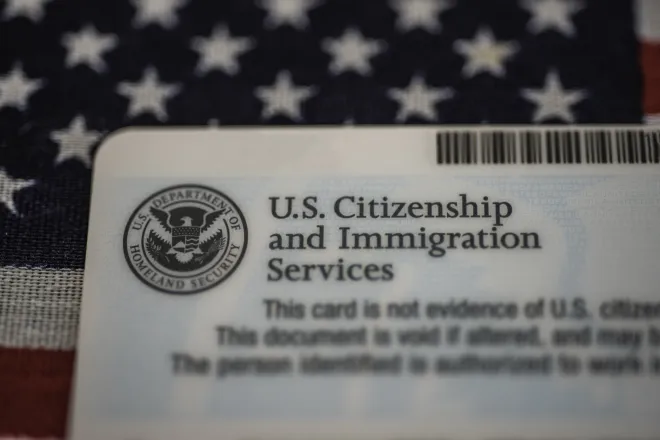
100s of Coloradans could be back on the streets with end of housing voucher program
© iStock
Gary Jackson’s most recent spell of homelessness happened during the COVID-19 pandemic. After being released from a more than 12-year prison sentence, his son died. He then lived unsheltered for a couple of years before his heart began to fail, which Jackson says is a direct result of his homelessness.
These challenges made Jackson a perfect candidate for the federal Emergency Housing Voucher program.

© iStock - ronniechua
EHVs were created by the American Rescue Plan Act of 2021 to provide housing for the chronically homeless; people fleeing domestic violence, human trafficking or sexual assault; and families facing housing instability. About 70,000 EHVs were distributed to public housing authorities across the nation.
Jackson’s EHV helped him get a room at the La Quinta hotel at Interstate 25 and Park Avenue in Denver while he received medical treatments for his heart condition. The EHV gave him enough stability to receive a Section 8 voucher that he’s used to rent an apartment of his own for more than a year.
“I got the Holy Grail of housing vouchers, apparently,” Jackson said.
Jackson is one of a handful of EHV holders who have successfully transitioned to more stable housing. However, there are hundreds more EHV holders in Colorado facing the possibility of being sent back to the streets.
In March, the Colorado Division of Housing received a letter from the U.S. Department of Housing and Urban Development saying that the EHV program is expected to run out of money by the end of 2026, four years earlier than originally expected.
Part of the reason for the lack of funding for the program is the national spike in rent costs. Median rents across the U.S. stood at $1,781 per month at the end of 2021, according to Realtor.com. Those rents peaked in July 2022 at around $1,850 per month, though they have steadily fallen to $1,694 as of March 2025.
Should the funding for this program end, many participants will go back to the dangerous living situations they were in.

At the same time, the Trump administration has made it clear that it does not intend to continue funding the program.
“While these EHV funds are being obligated to your PHA, you should manage your EHV program with the expectation that no additional funding from HUD will be forthcoming,” the letter DOH received says.
Colorado received 996 EHVs, which it then distributed to 12 public housing agencies across the state. Those public housing agencies were primarily located in Front Range counties like Boulder, Denver, Jefferson, and Adams. Cities like Fort Collins, Aurora, Colorado Springs and Littleton also received vouchers. Altogether, nearly 1,200 households benefitted from EHVs, according to federal data. There are 892 EHV units still leased, DOH spokesperson Shannon Gray told Colorado Newsline in an email.
“We are concerned about the implications of non-renewal of the funding for all (EHV) participants in Colorado,” Gray said. “Should the funding for this program end, many participants will go back to the dangerous living situations they were in.”
Gary Jackson is treated by Dr. Daniel Lindberg for complications related to his heart disease at the emergency room at the University of Colorado Anschutz Medical Campus in May 2024. Since 2022, Jackson estimates he has been hospitalized more than 50 times due to complications from chronic congestive heart failure. (Giles Clasen for Colorado Newsline)
No other options
For public housing officials, the anticipated end of the EHV program has become a significant cause for concern. Peter LiFari, CEO of Maiker Housing Partners in Adams County, told Colorado Newsline that there is a “mad frenzy” of communication and collaboration among public housing authorities in Colorado to figure out contingency plans for the remaining EHV holders.
Those contingency plans are complicated as Colorado leaders have already had to navigate a $1.2 billion state budget shortfall, and federal support remains uncertain. Meanwhile, advocates at the National Low Income Housing Coalition expect the Trump administration to significantly overhaul the Housing Choice Voucher program and reduce the number of available vouchers by around 200,000 in the fiscal year 2026 budget. Housing Choice Vouchers, also known as Section 8 vouchers, are the most common voucher available to people experiencing homelessness.

One change LiFari expects the Trump administration to push for is adding work requirements to the HCV program. HUD Secretary Scott Turner said after his confirmation that the agency should work to “increase self-sufficiency and empower Americans to climb the economic ladder toward a brighter future.” A 2022 federal review of work requirement policies found that they can increase part-time employment, but the impact of the policies to “reach a level that enables self-sufficiency remains unclear.”
“This is an appetizer from the administration to move the Overton window on work,” LiFari said.
Cathy Alderman, spokesperson for the Colorado Coalition for the Homeless, told Colorado Newsline that many of the EHV holders don’t have other housing options.
“They can’t just find another affordable place,” Alderman said. “It’s not likely that they have a great deal of resources saved up to move them into a market-rate unit that doesn’t accept vouchers, which is going to ultimately put a lot of people into the cycle of homelessness at a time when homelessness is already on the rise.”
Over the last year, homelessness in Colorado increased by more than 29% to more than 18,700 people, according to federal data. Subpopulations like families with children saw an even more significant increase in homelessness, rising 134% compared to 2023.
Moving people from an EHV to a more permanent housing voucher is also a complicated process, Alderman added. About 20% of the people who qualify for a housing voucher receive one for various reasons. The number of available vouchers fluctuates every year. There are also waitlists for people to apply for housing vouchers. The program also relies on landlords who accept housing vouchers, which can be inconsistent.
The Coalition has units it owns that can be used to provide housing for people who lose their EHV, but Alderman said there are not enough housing units to help the nearly 900 people who could be impacted.
“There’s no affordable housing for people to move into,” Alderman said. “It’s why we have the homeless crisis that we have.”















